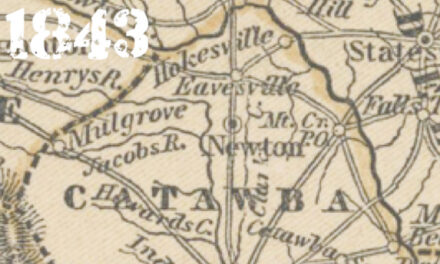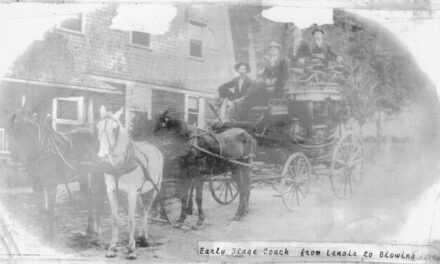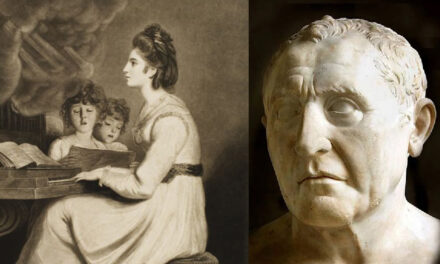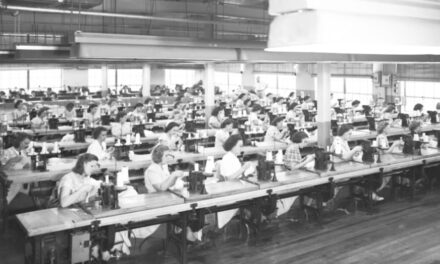
Know what a doogaloo is? Sherrie explains. – Richard Eller
Rhodhiss Manufacturing provided the Company Store as a place to shop, and it also housed the post office. Locals could collect their mail and purchase food, cloth, clothes, shoes, caskets, towels, hats, furniture, or any necessities. The Company Store, located in Caldwell County near Plant 1, was owned by the mill company but leased to various proprietors. At the turn of the twentieth century, travel was limited to train, foot, or horse, so having a store nearby helped the millhands.
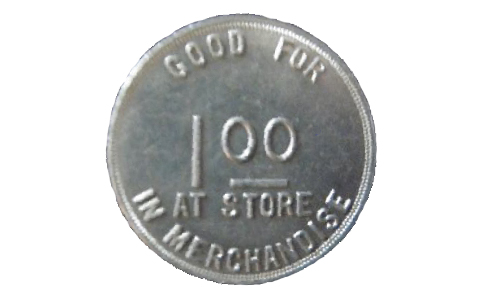
Photo: This is a doogaloo.
Rhodhiss ’mill village was established on the same scale as most Southern textile communities. Typically, this involved a mill, a company store, houses, and a large dwelling on a hill that accommodated the superintendent. In the early years most textile owners circulated their own currency for wages so that the workers were forced to shop at the company store. Rhodhiss ’money was called a “doogaloo,” which was the same name as the coin used in the Henry River mill village. Rhodhiss did not keep this currency long until they started paying in regular money. Gladys Barker said that her dad purchased shoe leather at the store to repair their shoes. Mattie Munday declared that she bought her first pair of nylon panties there. Earl Lutz said that during the 1918 flu epidemic citizens purchased coffins for victims at the company store. He added that people were dying faster than the company could get the caskets ready. Jack Edwards said his dad sold eggs to the various store owners. He commented that children’s vaccines were administered at the store, and the smell of camphor and salve were prevalent. The upstairs of the Company Store offered a huge meeting room where various community events took place. On Saturday afternoons men and women would dress up to go sit on the steps of the store for their entertainment. Various proprietors were named for the Company Store, and these included H.W. Price, Wade H. Shuford, Homer Ballengee, and Ellis, Gene, and Buddy Glass.
Not only did the textile owners use their own currency to keep patrons within the mill village, but they also had a rule that no other store could be within the town’s limits; thus, the company store’s dominance continued. Furthermore, the mill company extended credit to the employees, and oftentimes the millhands would never see all their wages because their store debt was deducted before the pay reached their hands. Stores outside the village also sold on credit, and these shopkeepers included Mart Wilson; Will Branch; John, Walt, and Rob Icard; Mr. Pritchard; Gus Rockett; Glenn Church; Joe and Thelma Church; Berry and Ethel Annas; Pappy and Mammy Church; Nate and Hattie Monteith; Everett Teague; Mr. Lutz; the Stephens family; and the Knox family.
The town of Rhodhiss had one-stop shopping in the early years which was convenient for both the millhands and the mill owner. The workers could obtain their necessities without leaving the village, and the company profited from their labor and their purchases.
– Sherrie Hartsoe Sigmon

